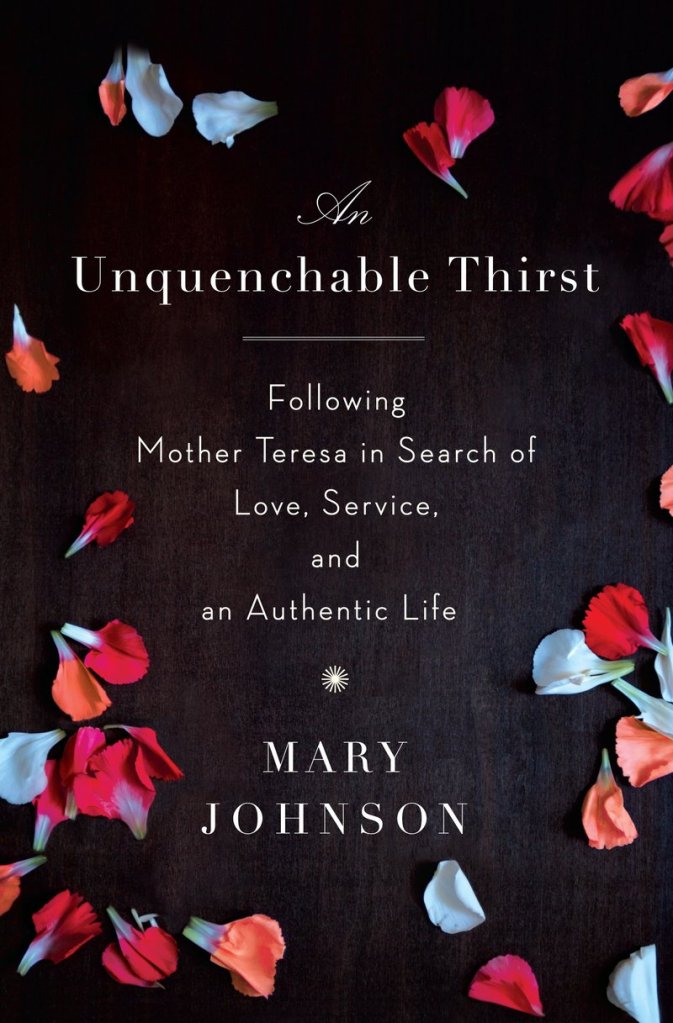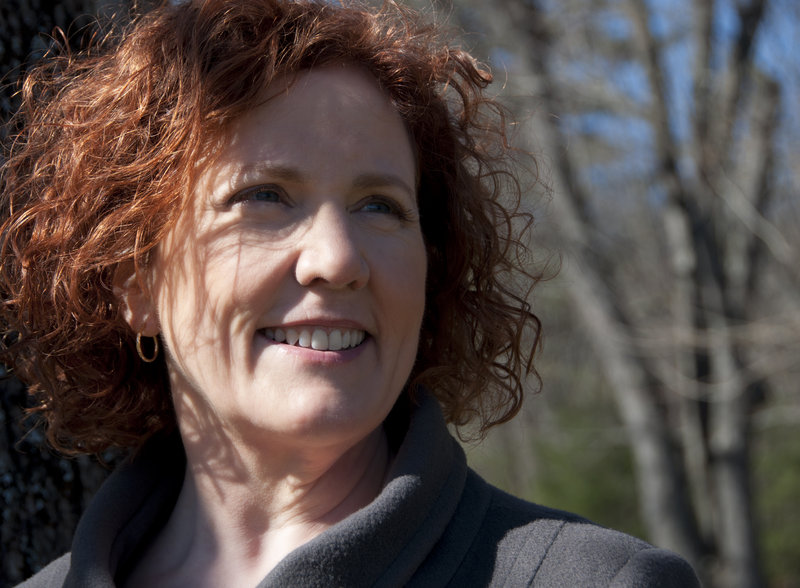When Mary Johnson decided to join the Missionaries of Charity, the religious order led by Mother Teresa, she knew that vows of poverty, chastity and obedience were required.
What she didn’t know as a 19-year-old aspirant was what those vows would come to mean in her everyday life. Her vow of chastity meant she would never again be allowed to touch anyone — not even grasp someone’s hand in thanks — for fear it would lead to a “particular friendship,” the order’s code words for emotional or physical intimacy.
A vow of poverty meant taking a bath with a tin cup and sharpening pencils with a knife. The vow of obedience meant blind obedience, bullying from her superiors and embracing the idea of self-flagellation. Johnson regularly beat her legs raw with a rope to remind herself of her sinful nature.
Johnson joined the Missionaries of Charity after becoming mesmerized by a photo of Mother Teresa on the cover of Time magazine. She spent 20 years as Sister Donata working in Rome, the Bronx, Washington, D.C., and Winnipeg, and getting to know Mother Teresa personally.
Johnson grew to love working with the poor. But her daily life of extreme self-denial, the squelching of her intellect and the strict rules against friendships led to a breaking of her vows (including a “particular friendship” with a priest) and a change of heart. Johnson left the order in 1997.
Her new memoir about her experiences, “An Unquenchable Thirst: Following Mother Teresa in Search of Love, Service, and an Authentic Life” (Spiegel & Grau, $27), earned a spot on Kirkus Reviews’ list of the Best Nonfiction of 2011.
Johnson was born in Michigan, but her family moved to Texas when she was 12. Now 53, she lives in Nashua, N.H., with her husband, whom she met at Goddard College when they were both working on MFA degrees. She is on the board of the A Room of Their Own Foundation, a nonprofit group that supports women artists and writers.
Today, the former Sister Donata, who was once so unhappy she would hide in the basement and cry, spends her days bike riding, doing yoga, gardening and learning to play the piano. We recently spoke to her about her book and her life in the Missionaries of Charity.
Q: A big part of spiritual growth, I think, is knowing yourself and how you interact with others in the world, and some religious institutions encourage the exact opposite — self-denial, lack of contact with others, etc. It’s like taking an advanced course in college when you haven’t even gotten through first grade yet. Do you think they have got it backwards?
A: I do. In a sense, you need to know yourself before you can give yourself. You can’t give something you don’t really have yet. I think the best gift we can give the world, really, is to be who we are, and to start off by saying we need to deny who we are, we’re depriving ourselves and others of the unique gifts that we have to give to the world.
Q: Was it hard after you left the order to adjust to the outside world and allow yourself to enjoy life?
A: It was incredible. The first time my sister took me to a restaurant and put a menu in front of me, I mean, it was just totally astonishing. No one had asked me what I wanted to eat for 20 years, and there were all of these choices. I couldn’t make up my mind. It took me, like, 20 minutes to decide what I wanted to eat.
And I had never seen an ATM before. I had never worked a microwave, to say nothing of computers and such things. I could prepare a meal for 60 sisters on a woodburning stove in two hours, but I didn’t have the faintest idea what to do with a microwave. So there were big adjustments just on those levels.
But then, trying to figure out what I wanted to do with my life, trying to figure out what I wanted to do with my day before, all my days had been scheduled. Everything that I was supposed to do had been assigned to me. Everything was just totally clear and mapped out. When you live that way for 20 years, it takes a while to figure out what it is you want, and it definitely took me a while. I had to learn to think for myself again in new ways and to carry through on those decisions that I made. It’s not like I had never thought for 20 years, but it was completely different to have control of my destiny.
Q: How has the church responded to your book?
A: The official Catholic Church does not have a response to my book. I’m not sure the Vatican knows it exists. Who knows? But the Missionaries of Charity were asked by a priest, who is also a journalist in Calcutta, what they thought about my book. And Sister Prema, who is the current superior general — who is someone that I knew while I was in the group — said that this was a humbling moment, but it was a moment of introspection, and she felt Jesus was calling the sisters to look into themselves and to correct any sort of errors. They haven’t been in touch with me directly. You know, the Missionaries of Charity kind of cut off communication with you when you leave, and that’s one of the hard parts for people who leave, because you miss the sisters.
Q: A lot of people today make the distinction that they are spiritual but not religious. Do you consider yourself a spiritual person still, and do you practice any kind of religion?
A: I don’t really practice any sort of religion right now, and I think I lived so long with such very strict labels that I kind of shy away from labels. I definitely try to live an honest life, a moral life, a loving life. I believe there’s a lot of mystery in the world and things that we don’t understand, and I’m happy stopping right there and saying I don’t understand it, and I’m just going to go forward with what I have and do the best I can. And I’m happy that way.
Q: Do you still believe in God?
A: Not the way that most people would talk about God, not in a supreme being kind of way, no.
Q: What is God to you now?
A: That’s a very interesting question. What is God in the sense of what is the ultimate meaning in my life, or what is the organizing principle of my life, or where do I think the world came from? I mean, there are so many questions inside that question. But I think what is really important to me, as I said before, is to live an honest, loving, moral, open, giving life. I find great satisfaction in the human relationships that I have. I do a little bit of meditation practice every now and then, but it’s not a peripheral addressing myself to a supreme being kind of thing. It’s being grounded with myself and my place in the world. I think that’s important for me.
Q: You so deeply admired Mother Teresa. Is there someone you admire as deeply today?
A: I don’t think there’s anyone that I kind of make an icon out of in the same way that I did with Mother Teresa, because I’ve learned not to do that (laughing). You know, I think we make a mistake when we hold any one individual human being up as a model. I think it’s important to draw inspiration from each other — and definitely there are many, many people that I’m inspired by — but none that I would give that kind of iconic status to as I did before, because we’re all human. We all have our strengths, we have our weaknesses, and I’m not interested so much in modeling my life after any individual anywhere, but just finding my own sense of myself from within.
Staff Writer Meredith Goad can be contacted at 791-6332 or at:
mgoad@pressherald.com
Send questions/comments to the editors.





Success. Please wait for the page to reload. If the page does not reload within 5 seconds, please refresh the page.
Enter your email and password to access comments.
Hi, to comment on stories you must . This profile is in addition to your subscription and website login.
Already have a commenting profile? .
Invalid username/password.
Please check your email to confirm and complete your registration.
Only subscribers are eligible to post comments. Please subscribe or login first for digital access. Here’s why.
Use the form below to reset your password. When you've submitted your account email, we will send an email with a reset code.